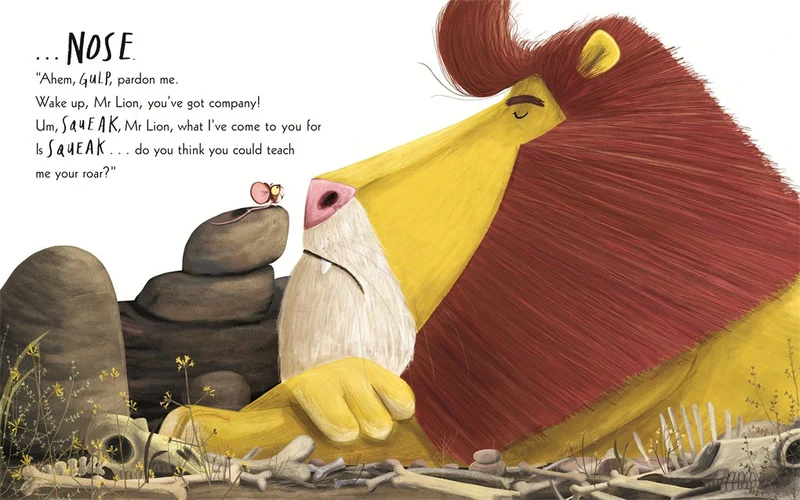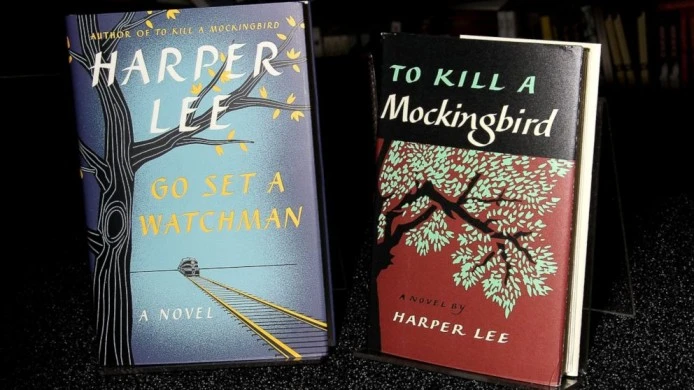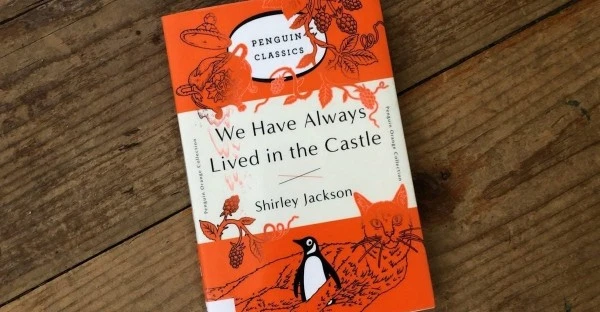8 New Books We Recommend This Week

I spent a lot of hours in the town library as a kid — my mother volunteered there, before she earned her graduate degree and became a school librarian a few towns over — and one result of all that happy browsing is that I developed a taste for the unexpected juxtaposition, the serendipity of shelving that might lead you from a book about gardening to a book about horses to a book about extrasensory perception. It wasn’t a big library; it wasn’t a big town. But it contained the world.
This week’s recommended titles follow that model: no theme but chance and wonder, from a history of the early days of air travel to a fantasy novel about overcoming trauma to a reporter’s account of uncovering government surveillance in the biggest story of his career. We bring you one novel by a giant of postcolonial literature, about the aftermath of a murder trial in Guadeloupe, and another by a first-time novelist, about the lives of Palestinian immigrants to the Chicago area. We bring you a writer’s remembrance of her grandmother, and a literary history of London’s Mecklenburgh Square, and a study of animal behavior across three species. We bring you serendipity. Happy browsing.
Gregory Cowles
Senior Editor, Books
Twitter: @GregoryCowles
DARK MIRROR: Edward Snowden and the American Surveillance State, by Barton Gellman. (Penguin Press, $30.) In May 2013, when Edward Snowden leaked classified documents about government surveillance to a select group of journalists, Barton Gellman was among them. “Dark Mirror” is Gellman’s engrossing account of their fraught relationship and his own reckoning with the American surveillance state. “His wariness makes Gellman a thorough, exacting reporter,” our critic Jennifer Szalai writes. “It also makes him a marvelous narrator for this particular story, as he nimbly guides us through complex technical arcana and some stubborn ethical questions.”
NOBODY WILL TELL YOU THIS BUT ME: A True (as Told to Me) Story, by Bess Kalb. (Knopf, $25.95.) The ventriloquized “me” of this memoir’s title is the author’s grandmother Bobby, telling from beyond the grave a version of her life story that creates a diaristic record of not just her own but also Kalb’s career and love life. The book is “an explicitly matrilineal project,” Miranda Popkey writes in her review, “but it’s less about the mother-daughter relationship than about the kind that skips a generation. A mother projects onto her daughter the hopes and fears she has since abandoned or succumbed to. … A grandmother, on the other hand, projects onto her granddaughter expectations that the younger woman can only achieve or be thwarted in pursuit of.”
EMPIRES OF THE SKY: Zeppelins, Airplanes, and Two Men’s Epic Duel to Rule the World, by Alexander Rose. (Random House, $30.) Rose grippingly explores the now-forgotten rivalry between airplanes and dirigibles that took place into the 1930s to determine which mode of transport would dominate air travel. “Rose has built a sweeping narrative,” Keith O’Brien writes in his review, “taking us all the way back to the 1800s, to the days of ‘aeronauts’ and ‘balloonmania,’ to the early dreams of flying and to the central question that loomed over aviation from the late 1890s all the way to the 1930s and the Hindenburg explosion. … If we are to fly — if we are to truly travel in the sky — will it be by airplane or will it be by airship?”
SQUARE HAUNTING: Five Writers in London Between the Wars, by Francesca Wade. (Tim Duggan, $28.99.) Before Mecklenburgh Square, in Bloomsbury, was bombed during the Blitz, five women pathbreakers — including Virginia Woolf, the poet Hilda Doolittle and the novelist Dorothy Sayers — lived there at one time or another, a coincidence Wade mines to appealing effect to tell their stories. Our reviewer, Blanche Wiesen Cook, calls the book “vividly written” and unexpectedly resonant: “In our own moment of global catastrophe, Wade offers us a timely invitation to join our literary foremothers in their rebellious journeys to achieve creative freedom and world harmony.”
CHOSEN ONES, by Veronica Roth. (Houghton Mifflin Harcourt, $26.99.) In her first novel for adults, the author of the Y.A. “Divergent” series unveils a heroine who is trying, and failing, to piece her life together 10 years after helping to defeat the Dark One. Roth uses these attempts to heal as the backbone of Sloane’s story: “Her approach is to bring us inside Sloane’s bitter excavation of the past even while keeping us at arm’s length,” Naomi Novik writes in her review. “Each small fragment of an answer is hard-won. Still, piece by piece they come, until we’re hovering on the edge of understanding, with the feeling that there’s a door to revelation up ahead just starting to crack open.”
BECOMING WILD: How Animal Cultures Raise Families, Create Beauty, and Achieve Peace, by Carl Safina. (Holt, $29.99.) Safina, the ecologist and author of many books about animal behavior, here delves into the world of chimpanzees, sperm whales and macaws to make a convincing argument that animals learn from one another and pass down traditions in a way that will feel very familiar to us. “Whether these are airtight examples of ‘culture’ is debated,” Alexandra Horowitz writes in her review. “But by living among the animals, in their world, Safina and the field scientists he visits show us something else, something too often overlooked in research and in conservation: who the animals are, and how they live.”
THE BELLE CRÉOLE, by Maryse Condé. Translated by Nicole Simek. (University of Virginia, paper, $21.95.) A young black gardener in Guadeloupe seeks refuge after he is acquitted of murdering his wealthy white lover. Condé’s novel is a fascinating cross section of a world shaken by unrest and a troubled colonial history. Dieudonné “has been but a minor character in his own murder trial,” Justin Torrres writes in his review. “He knows something larger has played out, something symbolic, which required his actions, his youth, his victim’s whiteness, but nothing of his actual self.”
THE BEAUTY OF YOUR FACE, by Sahar Mustafah. (Norton, $26.95.) In the Chicago suburbs, a gunman opens fire at a school for Palestinian girls. Mustafah’s debut novel rewinds from the shooting to the principal’s childhood as a newly arrived immigrant, opening into a story of outsiders coming together. “It’s a story of survival and hope, forgiveness and connection,” Elisabeth Egan writes, reviewing the book alongside two other debuts. “It’s not just about the beauty of Afaf’s face, as the title implies, it’s about the beauty of her heart and the hearts of the people around her, no matter how lonely or scared they are.”




